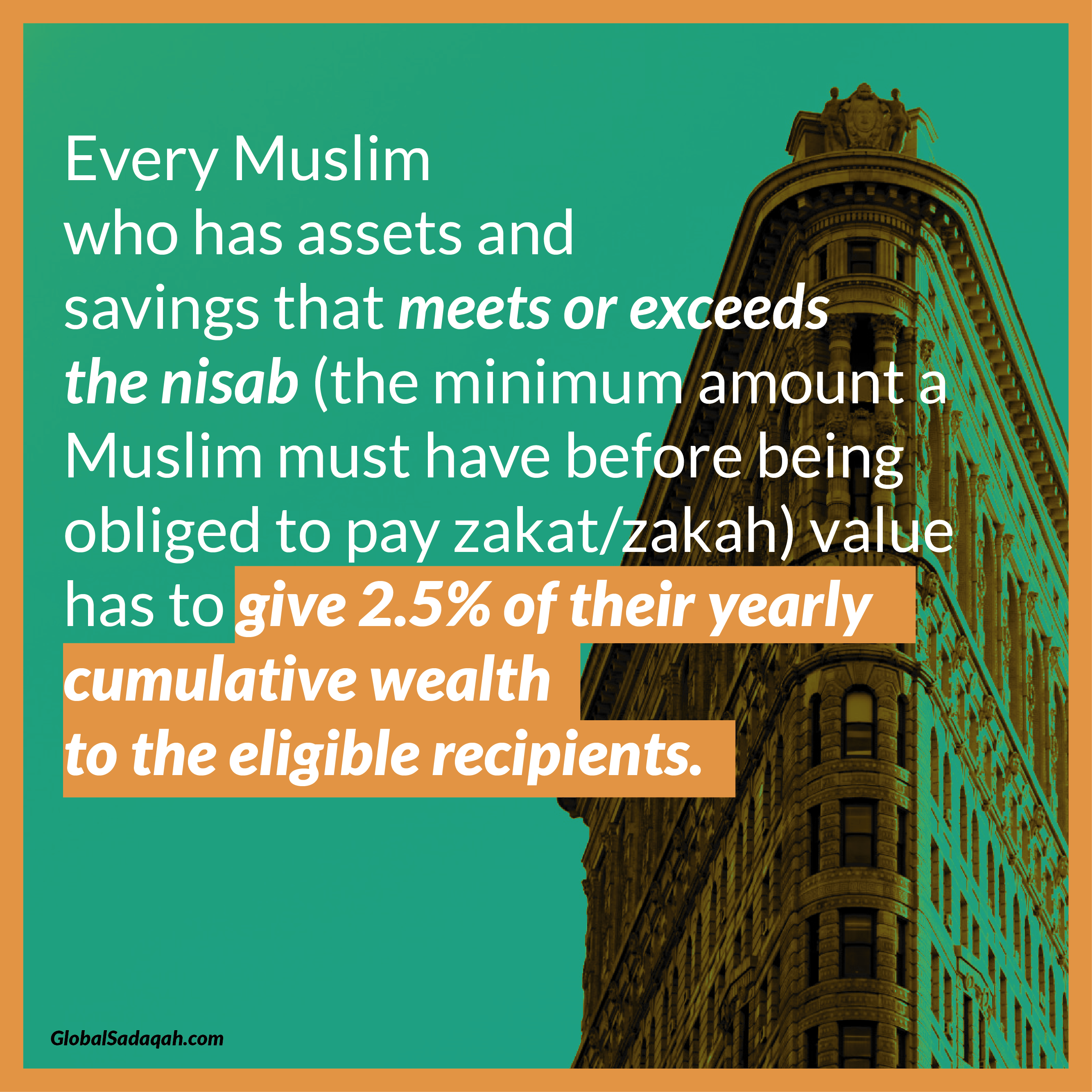Hmmm do you ever wonder which is the correct spelling? Zakah or Zakat? Sadaqah or Sadaqa? And the list goes on and on…
In the case of Zakat/Zakah, it is the third pillar of Islam, after shahadah (faith) and salah (prayer). Altogether, it is mentioned 32 times in the Qur’an with a strong emphasis on its importance in Islam. Zakat/Zakah is compulsory for every able Muslim to fulfill this obligatory charity, as it is an act that purifies a person’s soul and wealth. Every Muslim who has assets and savings that meets or exceeds the nisab (the minimum amount a Muslim must have before being obliged to pay zakat/zakah) value has to give 2.5% of their yearly cumulative wealth to the eligible recipients. According to Surah al-Tawba, verse 60, Zakat/Zakah recipients are as follows:- destitute; poor and needy; zakat collectors; people in the way of Allah SWT.; people burdened with debt; wayfarers; people in bondage or slavery and people who are inclined towards Islam.

Origin of the Word?
The word Zakat has been spelled as either Zakat or Zakah in various sources. This word originates from Semitic languages used way before the Qur’an was revealed. The Semitic languages (Arabic, Hebrew and Aramaic) was common in old civilisations in the Middle Eastern region. The word Zakat or Zakah was a common word belonging to the Semitic languages, but after its usage in Quran it is commonly interpreted as purification.
What is the Accurate Spelling?
There is no hard and fast rules as an accurate spelling as this is a transliteration of an Arabic term, but the confusion still persist. In Arabic, Zakat is usually pronounced as Za-kaa-th , and word Zakah is commonly pronounced as Zaa-kah. We can possibly assume that the more suitable English transliteration is Zakat rather than Zakah, as it shares a closer pronunciation to the original arabic word. Moreover the word Zakat is more often found in books, papers and websites than the word Zakah, thus making it the popular default spelling.
Conclusion
Zakat/Zakah is an Arabic word which is derived from the Semitic languages. Its Arabic reference in the Qur’an in its simplest meaning is to purify. While both words are based on the same Arabic word, Zakat carries a closer pronunciation to the original Arabic word than Zakah.

